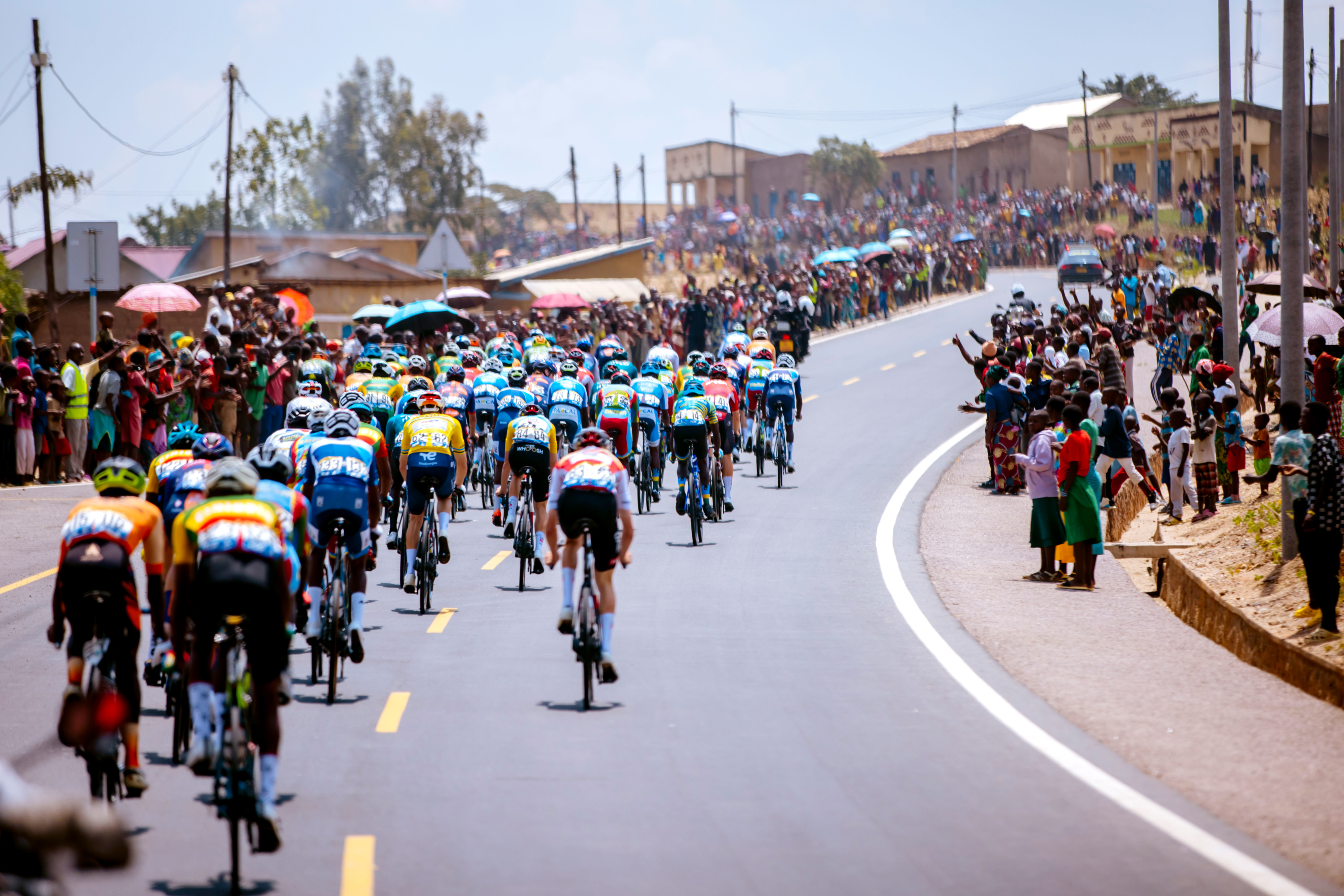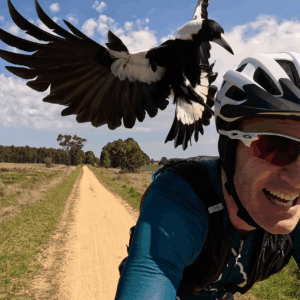The long road to the 2025 UCI Road World Championships in Kigali, Rwanda, has been strewn with obstacles, writes Peter Maniaty.
It’s the cradle of human civilisation. Yet, for millennia, the story of Africa has been one shaped by turbulence, change and conflict, and in more recent centuries the far reaching impacts of colonialism.
This brings us neatly to cycling. For given the inescapable French, Belgian, Dutch, British, German and Italian influences that continue to touch almost every corner of the African continent – not to mention a rather European-friendly time zone – in some ways it’s surprising the UCI Road World Championships have taken so long to reach these shores. Then again, there’s a counter-argument that it’s precisely because of these colonial associations that bike racing, historically considered a ‘white person sport’, has been slow to gain traction unlike the continent’s first sporting love, football, which has flourished for decades. Either way, the wait is over; the time for African cycling is now. Rwanda, you’re up.
Tracing the road that led to this historic moment is far from smooth. Rwanda’s most famous bike race, the eponymous Tour du Rwanda, actually began in 1988. Just three years later ethnic tensions tore the East African nation apart and the Tour was abandoned until the end of the millennium. There was little time for such trivialities.
But as years passed the wheels of hope began to turn once more. In practical terms, the first seeds of the Kigali World Championships were really sown in 2007 with the formation of Team Rwanda Cycling (today known as Team Africa Rising, or TAR), a story immortalised in the Tim Lewis book, Land of Second Chances, and later the 2012 film, Rising From Ashes. Cycling slowly began to rediscover its space in Rwanda, growing in size and confidence, before being thrust into the big chainring in 2017 when, as part of his first UCI Presidential campaign, David Lappartient lent strong support for the UCI’s blue riband event to be taken to the African continent. Following his election, Lappartient urged Africa’s national federations to present bids for 2025 – a position unanimously supported by the UCI Management Committee.
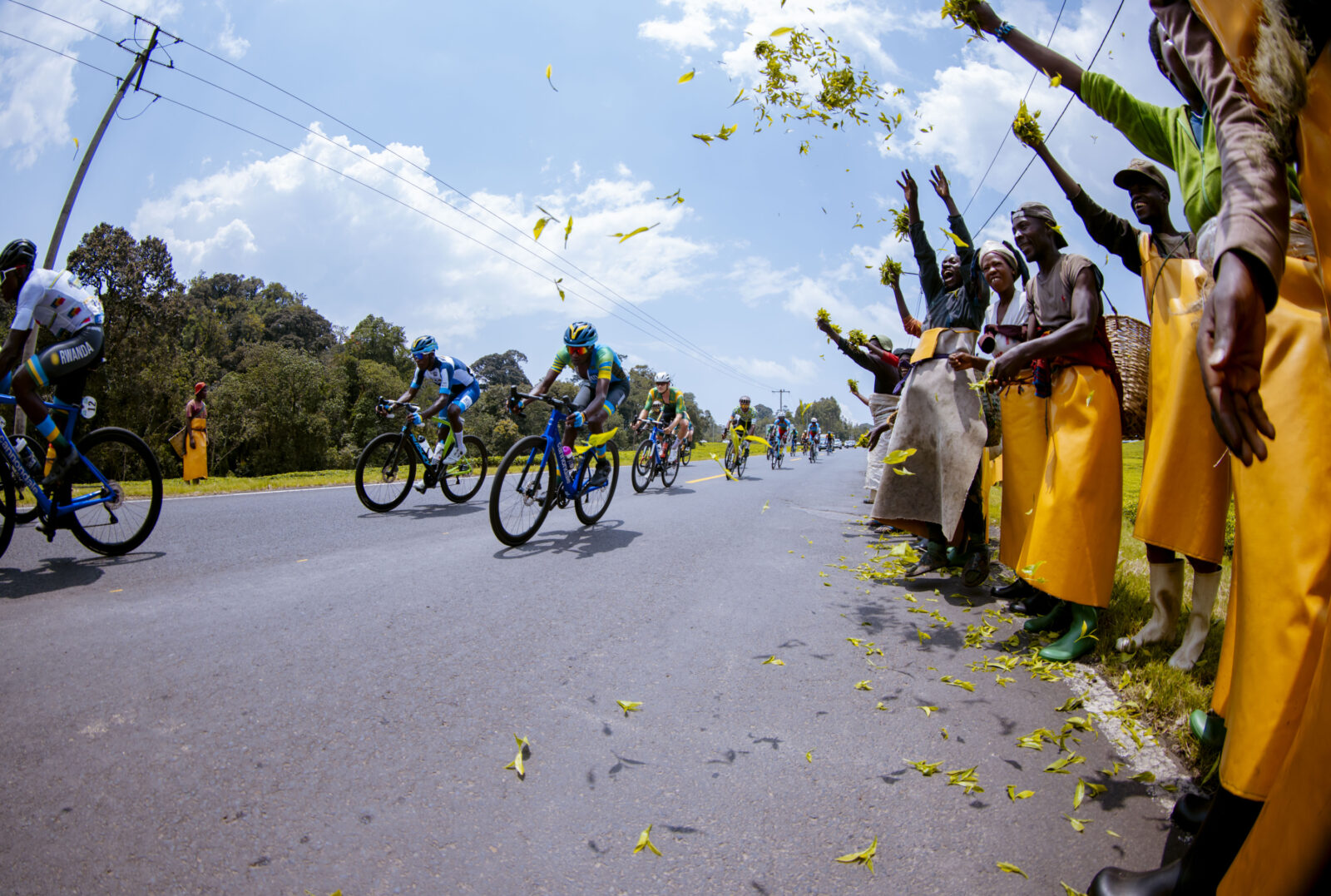
Having already hosted the UCI Mountain Bike World Championships in 2013 and the UCI Para-Cycling Road World Championships in 2017 – and the small matter of the 2010 FIFA World Cup – South Africa seemed the most likely host. However, no formal bid eventuated and the Rwandan capital of Kigali was chosen at the UCI’s 190th Congress in Leuven, Belgium in September 2021, ahead of a sole rival bid from Tangier in Morocco. “I am delighted we are heading to Kigali,” gushed David Lappartient at the time. “The Rwandan capital will provide a magnificent backdrop for the event’s first appearance on African soil.”
The Frenchman has been far from alone in heralding the opportunity to deliver an enduring legacy for African cycling. Phil Liggett OBE, for one, fully endorses Lappartient’s enthusiasm, speaking recently to Bicycling Australia from his second home near Kruger National Park in South Africa. “Rwanda must be congratulated in its effort to pull off a UCI World Championships on the African continent,” says Liggett. “Politically there are problems, but the country will have a magnificent championships and live through a memorable period. After (Biniam) Girmay’s three stage victories in the Tour de France, the streets of Eritrea danced throughout the night. Now, the time is right to prove what African nations can do. Rwanda is an advanced country and a successful World Championships will see the sport in Rwanda, and indeed much of Africa, move forward in leaps and bounds.”
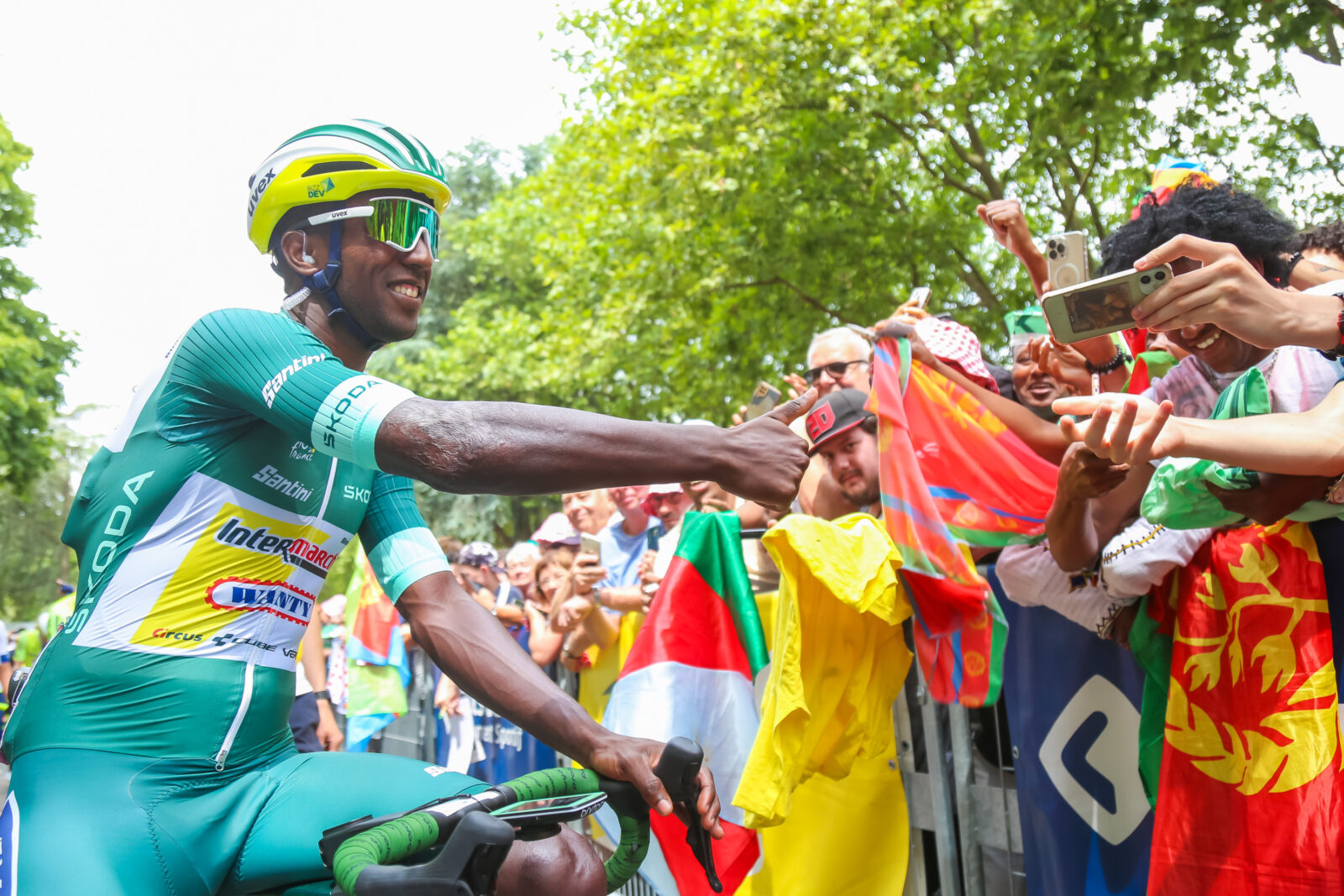
According to Jeremy Ford, Communications & Logistics Consultant with Team Africa Rising, the significance of the moment cannot be over-stated. “Cycling is such a Europe-centric sport and to see countries like Australia host in 2022 and the USA back in 2015, it really was the right time to give the continent its shot,” he says. “The celebrations across Africa when the result was announced were amazing – but also across the world as Africa has a huge global diaspora, we expect millions of fans to be watching.”
“It’s just over a decade since the big shift in awareness of African pro cycling,” Ford continues. “That was the break-out season of Doug Ryder’s Team Dimension Data. Although the team had been running since 2008, 2015 is seen as the defining moment with a stage win at the Tour de France on Nelson Mandela Day, Louis Meintjes winning the African Continental Championships and overall GC wins at the Tours of Britain and Langkawi. With 14 African riders on the roster ‘Africa’s Team’ really did make an impact and the ripples of that are still very much felt today.”
Ford is also in little doubt Rwanda is ready for its defining moment. “TAR worked in Rwanda for just over ten years, as it came right up to the top levels of African cycling as a nation, as well as the Tour du Rwanda itself which has been UCI 2.1 level for seven years now. The foundations for a World Championships are there, it’s obviously a different level of racing, but we are convinced the country is ready to host.”
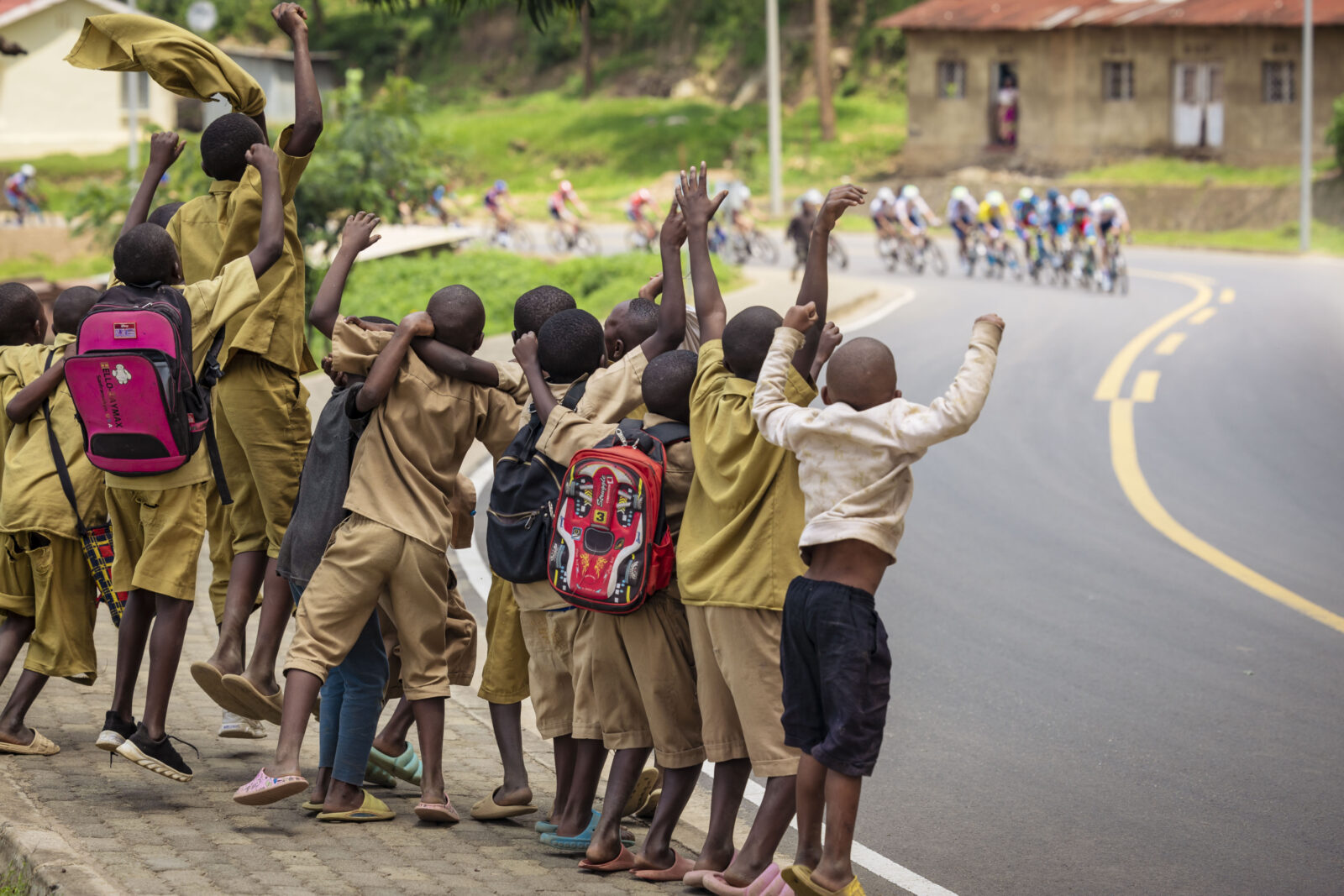
Perhaps even more encouragingly, TAR is hugely optimistic about the wider participation from African nations given the reduced barriers to entry. “We are hearing more of the 54 cycling nations of Africa will field riders than ever before at a UCI World Championships,” says Ford. “This will make it a real showcase for the entire continent.”
Attracting Africa’s best riders is one thing. But what about the fans? Does the average Rwandan really care about cycling? “It would blow your mind!” beams Jeremy Ford, who spends much of his time traversing Africa reporting on the continental racing scene. “Cycling in Rwanda – and most of East Africa – is almost a religion. Each year the Tour du Rwanda sees around 2-3 million people on the road-side. The UCI is predicting one million people on the road for the Men’s and Women’s Elite races, but we think it will be even more, as there will be a massive influx of visitors from cycling mad communities in Eritrea, Ethiopia, Uganda and Kenya, as well as further afield.”
Phil Liggett mirrors Ford’s enthusiasm. “The people of Kigali will welcome the cycling world with a passion – even though in some cases they may not have the ability, or finance, to practice the sport themselves. The Tour du Rwanda is now a household name, as will be the sport of cycling in general after the Championships leave.”
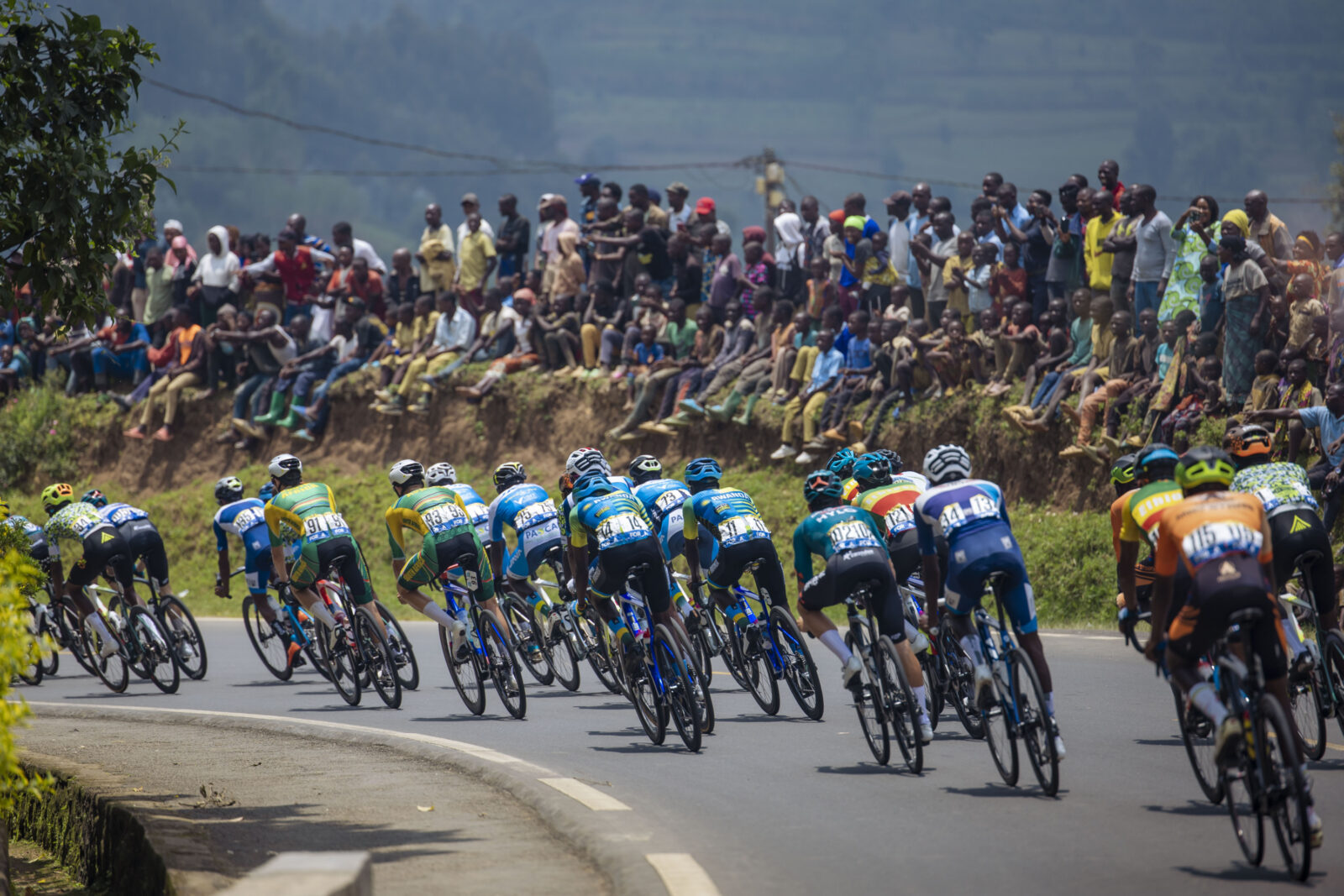
Of course for all the hype and expectation, Africa’s first UCI Road World Championships is not without controversy, which in many ways seems almost inevitable given the region’s ongoing geopolitical instability. A landlocked nation in the Great Rift Valley, Rwanda is bordered by Uganda to the north, Tanzania to the east, Burundi to the south and the Democratic Republic of Congo to the west – the latter whose Government is the midst of civil conflict with a rebel group known as the March 23 Movement, or M23. Figures within the UN and European Parliament have suggested M23 is receiving support from the Rwandan Government, something the Rwandans deny. True or not, tensions remain high and a quick Google search reveals not everyone is pleased the UCI’s annual showpiece will soon be taking place on Rwandan soil.
The UCI for its part has been unwavering in its support, with David Lappartient somewhat bluntly explaining in March 2025 there is no Plan B. It’s Kigali or bust. “The UCI World Championships in Kigali are incredibly special,” Lappartient told CyclingNews earlier in the year. “It will be a unique moment for us as UCI celebrates its 125-year birthday, so we decided to go to Africa. This was my dream when I was elected UCI President and I am proud to say: here we are.”
It’s always tricky to predict the start-lists for a World Championship, especially one that’s held away from Europe. Several nations have already indicated they won’t be taking Junior squads to Rwanda. It remains to be seen if this flows into the Senior ranks as more line-ups begin to be announced. However, one of cycling’s strongest nations – and home of reigning Women’s World Champion, Lotte Kopecky – has already committed to send a full squad to Kigali with the Belgian Cycling Federation confirming its participation in early June following safety assurances from the Belgian Government and UCI, whilst stressing that no rider will be obliged to travel to Rwanda against their wishes.
On paper Kigali certainly looms as a race that will suit all the top GC contenders in both the men’s and women’s events, so expect climber heavy squads. For the same reason it also seems long odds Africa’s most accomplished male professional rider, Biniam Girmay, will be on the start-line in Kigali. But even if Girmay does decide to pin on a number for posterity, the Eritrean fast-man may do well to last to half distance.
In the women’s race, five-time African Champion Ashleigh Moolman-Pasio (South Africa) and 2025 Liege-Bastogne-Liege winner Kim Le Court (Mauritius) are likely to lead the African charge. Notably, the 2025 UCI Road World Championships will also be the first to see a separate Under 23 race for the women – a long-awaited change that could have a genuine bearing on the style of racing in both the Under 23 and Elite Women’s races.
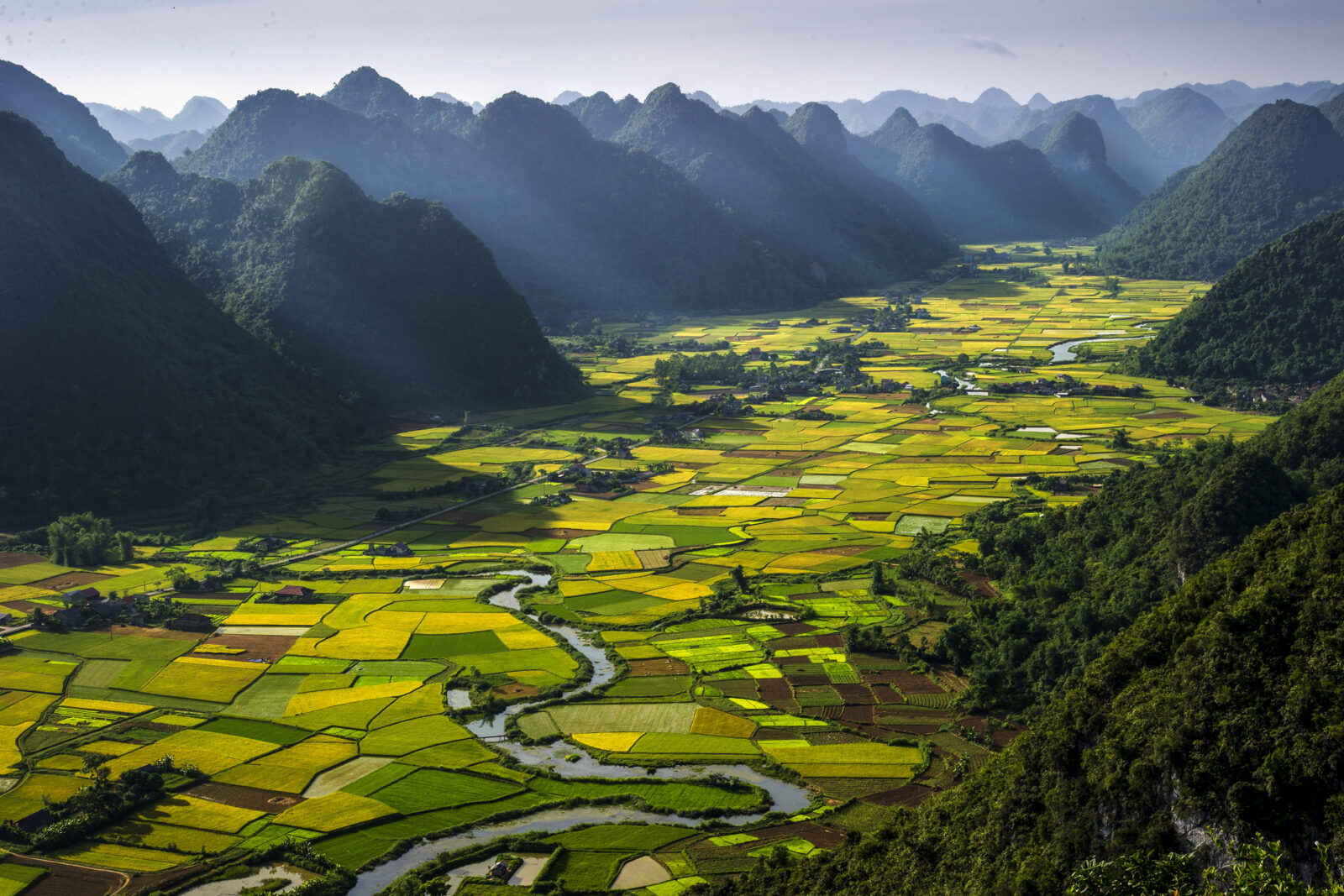
Rwanda is known as the ‘Land of a Thousand Hills’ and the organisers have served up courses that reflect this. They’re tough, really tough. These rainbows are most certainly for the pure climbers or, with a mighty helping of good luck, very strong punchers on a very good day. Sprinters need not apply. The Elite Women will tackle a 164km course with 3,350 metres of elevation spread across 11 laps of the Kigali Local Circuit. The Elite Men will tackle a 267km course with 5,475 metres of elevation with 15 laps, punctuated by a separate ascent of the 6km Mont Kigali (6.9% av) on the Extension Circuit in the middle of the race.
According to Phil Liggett: “Let’s be honest, the courses for the road races are very hard, so the sprinters will have a tough visit to a beautiful country. There will be no African icing on the cake by way of medals. However, the ability to organise a World Championships will show us all how sport is still the best catalyst to success in both connection and friendship. Africa will begin to infiltrate the world scene, bringing hope to many young African riders who dream of being the next Pogačar or Evenepoel.”
Liggett’s is no fanciful dream, mind you. “African cycling is at a really interesting point in its development,” says TAR’s Jeremy Ford. “For the last decade, we have seen half a dozen African riders at the WorldTour level, mainly from Eritrea and South Africa, and that number is healthy still for the 2025 season.”
“Right now, there are nearly 150 male and female African riders racing in the top three levels of UCI cycling representing over a dozen countries,” Ford continues. “For context, this year there are 95 riders from Australia and 85 from North America. The challenge, of course, is that around 140 are at the Continental level and we need to provide pathways for more to progress up to Pro Conti and ultimately the WorldTour.”
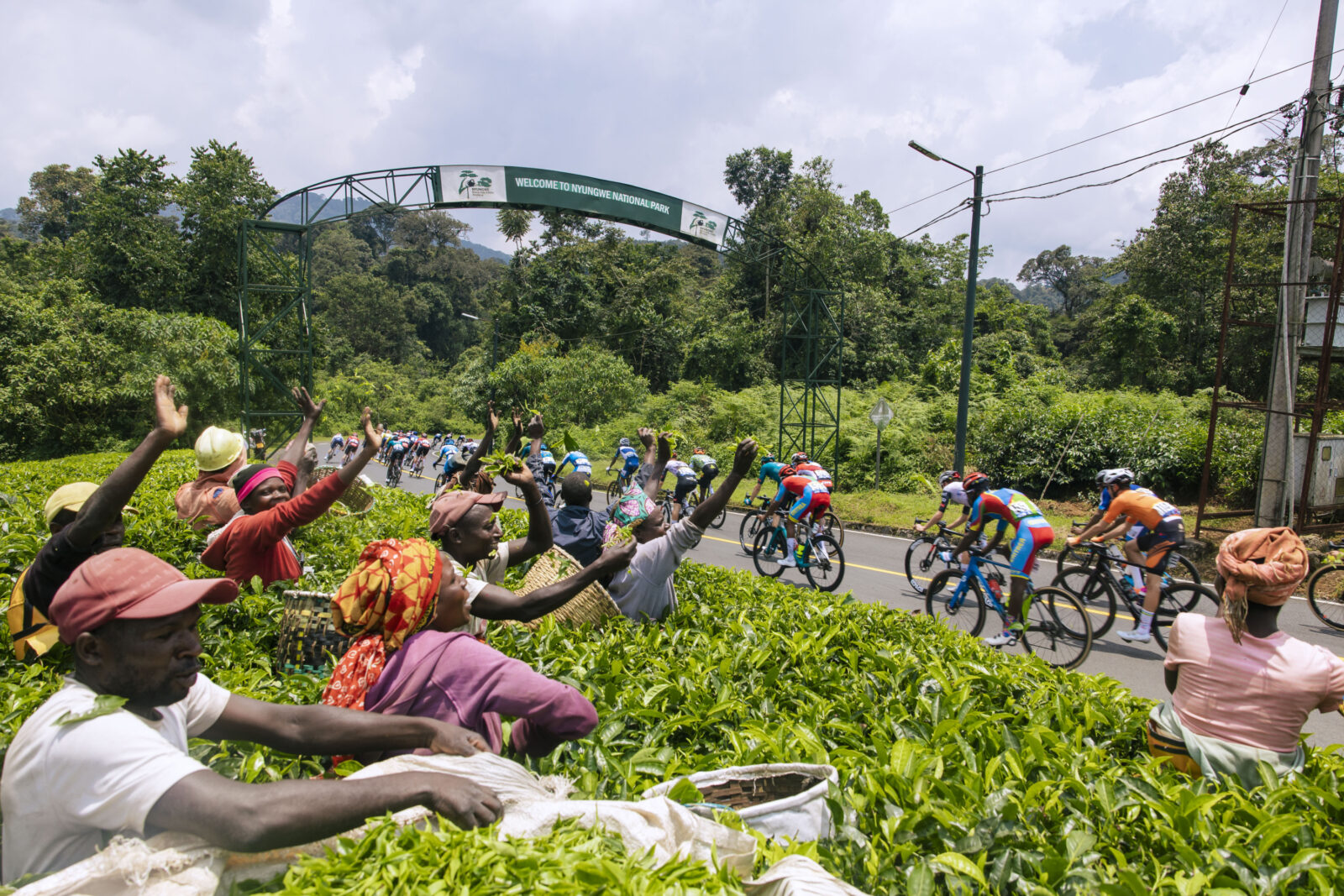
TAR sees the Kigali World Championships as a key stepping stone towards achieving this. “Legacy is absolutely vital and it will be a big moment in the ongoing development of cycling in Africa,” says Ford. “We really think black riders around Rwanda, Africa and the world are going to take note and engage with cycling. When Biniam Girmay stood on the Tour de France podium, TAR was getting messages from around the world. I spoke recently with David Lappartient, the President of the UCI, and we discussed that we should all start talking about cycling becoming known as the ‘second sport of Africa’ (behind football). This language will inspire more participation at the grass-roots level and the formation of more clubs, more teams, more races and, ultimately, more professional riders.”
As for riders and nations to watch? “Eritrea and South Africa have led the way over the years,” reiterates Ford. “Right now, there’s a young Eritrean, 19-year-old Milkias Maekele, who is seen as ‘the next Biniam Girmay’ due to similar results and data as a 19-year-old Biniam so keep an eye on that name.”
“In terms of nations, we see Algeria and Morocco in the North being the next level, with both now boasting Continental level road teams racing in Africa and Europe. Benin is our pick in West Africa, it has a simply unique Cycling Federation president in terms of vision and passion, and double Olympian and ex-WorldTour rider Adrien Niyonshuti as their national coach. In East Africa, we’re seeing some excellent women developing in Ethiopia and Uganda as well as a handful in Rwanda. In the South, Mauritius is showing exciting growth with Kim Le Court, plus a talented group of young Mauritian men; they promise to do some good things.” Indeed, it seems African cycling is just getting started. Roll on, Kigali.
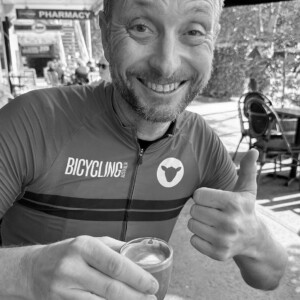
Peter Maniaty
Peter Maniaty - Peter is Bicycling Australia’s senior journalist, and highly respected in the world of cycling. From bike reviews, to destination features and nitty gritty opinion pieces, he’s a gun writer.
